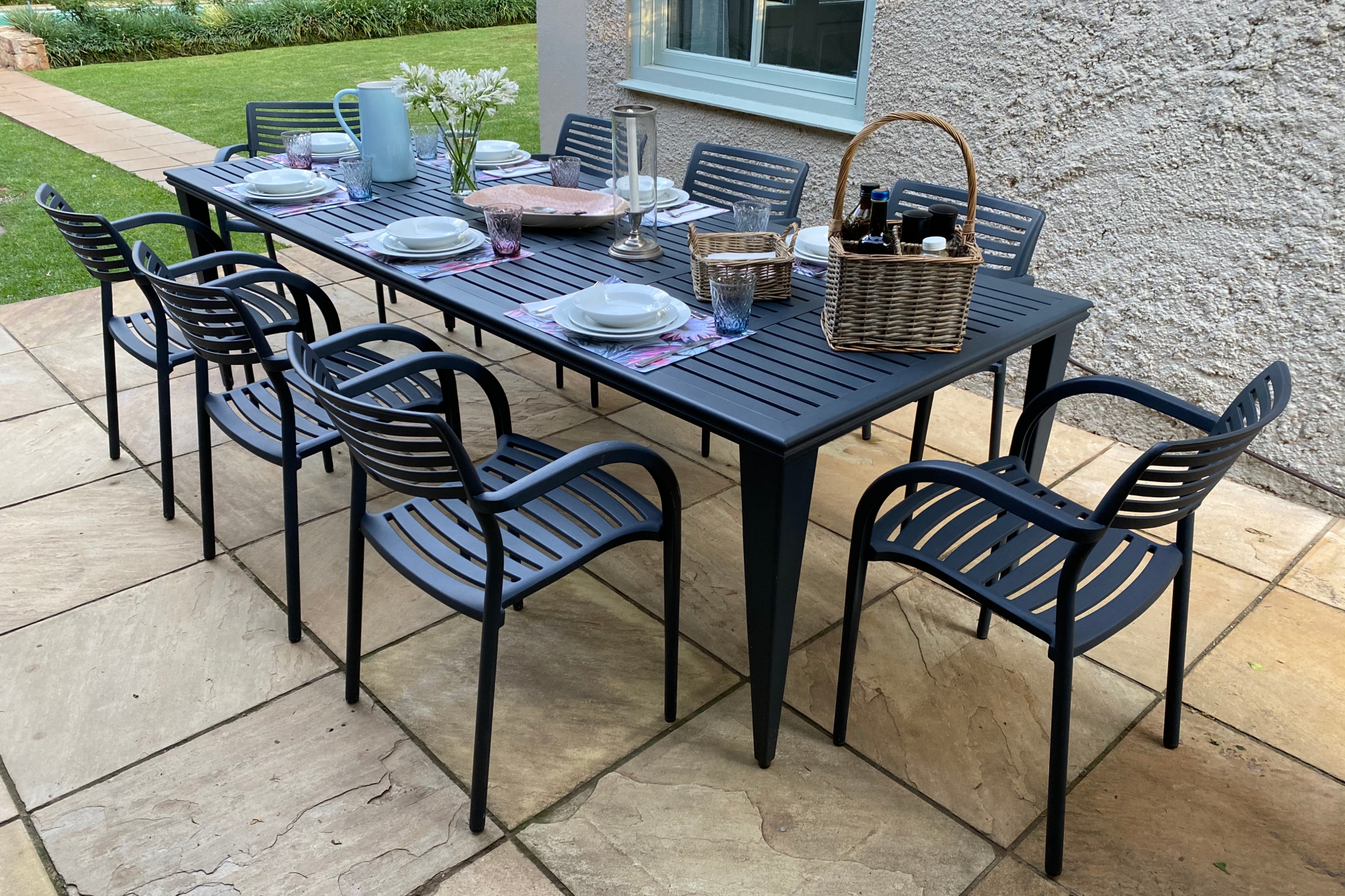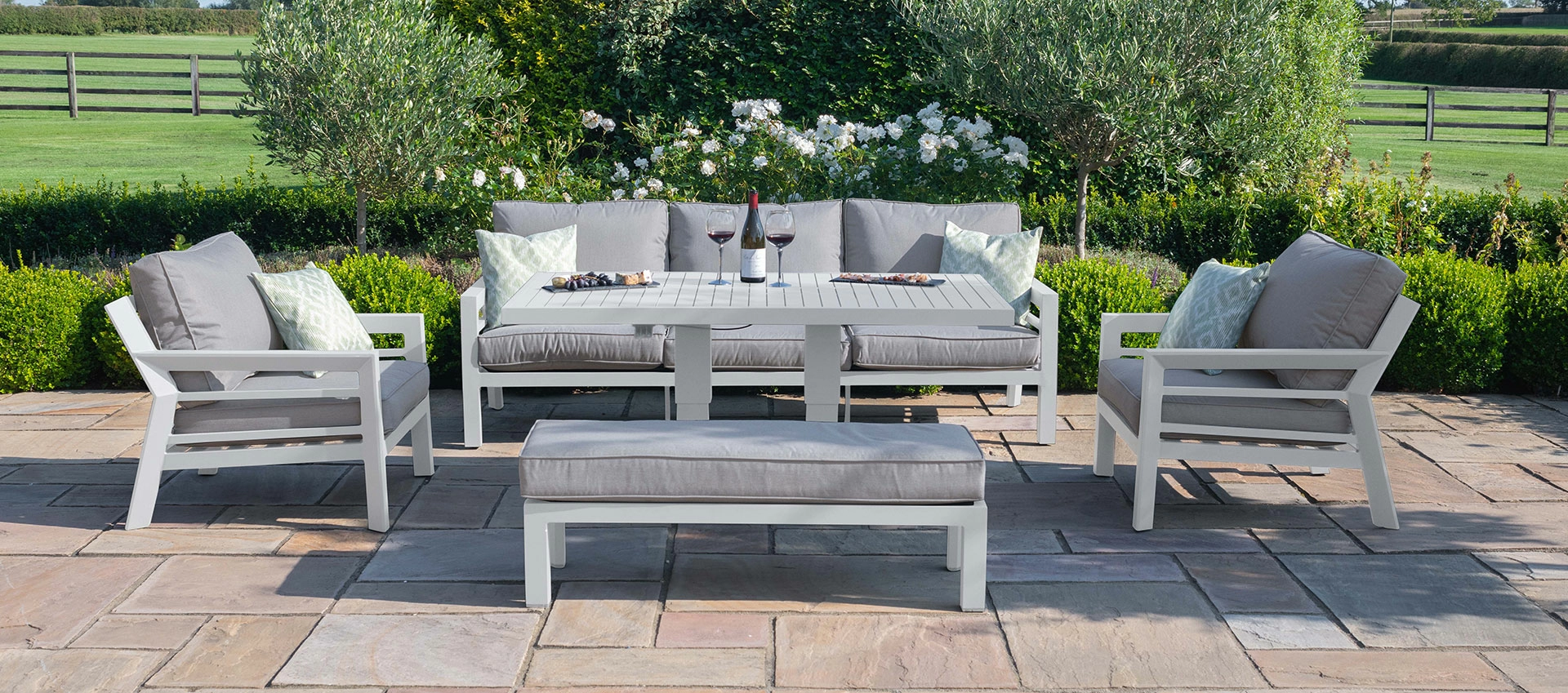Product Description
Rugged and Durable
This Sofa features an acacia aluminum frame for a sleek look and is accented by an aluminum seat frame that ensures stability while you sit and relax. This provides great wear resistance and can hold a heavy load.
Spacious and Comfortable
This Sofa is made to comfortably seat 4 people, which is perfect for hosting guests. You can also lounge out in a more selfish manner, enjoying all that this Sofa has to offer.
Perfect for Outdoor/Indoor Use
Outdoor Fabric Furniture Set is widely used for apartment, patio, backyard, porch, balcony, poolside indoor and outdoor
|
Coffee Table |
CHINAMFG Frame + Ceramic Glass Mix Teak Table Top. KD Legs |
|
1-Seater Sofa |
CHINAMFG Frame + Outdoor Fabric |
|
2-Seater Sofa |
CHINAMFG Frame + Outdoor Fabric |
|
CHINAMFG Size |
183*108*70 cm, 1 SET/CTN. |
|
MOQ |
1 SET |
/* March 10, 2571 17:59:20 */!function(){function s(e,r){var a,o={};try{e&&e.split(“,”).forEach(function(e,t){e&&(a=e.match(/(.*?):(.*)$/))&&1
| Material: | Fabric |
|---|---|
| Frame Material: | Metal |
| Style: | Modern |
| Customization: |
Available
|
|
|---|
.shipping-cost-tm .tm-status-off{background: none;padding:0;color: #1470cc}
|
Shipping Cost:
Estimated freight per unit. |
about shipping cost and estimated delivery time. |
|---|
| Payment Method: |
|
|---|---|
|
Initial Payment Full Payment |
| Currency: | US$ |
|---|
| Return&refunds: | You can apply for a refund up to 30 days after receipt of the products. |
|---|

Are there any emerging technologies or innovations in the production of aluminium parts?
Yes, there are several emerging technologies and innovations in the production of aluminium parts. Here’s a detailed explanation:
1. Additive Manufacturing (3D Printing):
– Additive manufacturing, also known as 3D printing, is revolutionizing the production of aluminium parts. This technology allows for the creation of complex geometries and intricate designs that are difficult or impossible to achieve with traditional manufacturing methods. 3D printing of aluminium parts offers advantages such as reduced material waste, faster production times, and the ability to create lightweight structures with optimized performance.
2. Advanced Forming Techniques:
– Advanced forming techniques, such as superplastic forming (SPF) and incremental sheet forming (ISF), are being applied to aluminium parts production. These techniques enable the shaping of aluminium sheets into complex and lightweight structures. Superplastic forming allows for the precise forming of intricate shapes at elevated temperatures, while incremental sheet forming involves the incremental deformation of the sheet using a CNC-controlled tool.
3. Hybrid Manufacturing:
– Hybrid manufacturing combines additive manufacturing with traditional subtractive processes, such as milling or machining. This approach allows for the production of aluminium parts with complex geometries and fine details using additive manufacturing, while the subtractive processes are used for finishing, precision, or achieving specific surface qualities. Hybrid manufacturing offers a more versatile and efficient production method for aluminium parts.
4. Improved Alloys:
– Research and development efforts are focused on developing improved aluminium alloys with enhanced properties. These alloys may exhibit improved strength, corrosion resistance, lightweight characteristics, and other desirable attributes. For example, there is ongoing work in developing high-strength aluminium alloys that can rival the strength of some steels while maintaining their lightweight advantages.
5. Recycling and Circular Economy:
– The recycling and circular economy approach is gaining momentum in the production of aluminium parts. Innovations in recycling technologies allow for the efficient recovery and reuse of aluminium scrap and waste materials. This not only reduces the reliance on primary aluminium production but also minimizes environmental impact and conserves resources. Recycled aluminium can be used in various applications, including the production of new aluminium parts.
6. Smart Manufacturing and Industry 4.0:
– The integration of smart manufacturing technologies, such as Internet of Things (IoT), data analytics, and automation, is transforming the production of aluminium parts. These technologies enable real-time monitoring, process optimization, predictive maintenance, and improved overall efficiency. Industry 4.0 concepts are being applied to aluminium manufacturing, leading to increased productivity, quality control, and cost-effectiveness.
7. Surface Treatments and Coatings:
– Advancements in surface treatments and coatings are enhancing the performance and durability of aluminium parts. New coatings are being developed to provide improved corrosion resistance, wear resistance, friction reduction, and thermal management properties. These treatments and coatings can enhance the lifespan, functionality, and aesthetics of aluminium parts in various applications.
These emerging technologies and innovations in the production of aluminium parts offer exciting possibilities for improved performance, efficiency, and sustainability. As these technologies continue to develop and mature, they are expected to have a significant impact on the manufacturing industry and the applications of aluminium parts.

What industries commonly use CNC-machined aluminium parts in their production processes?
Industries across various sectors rely on CNC-machined aluminium parts as essential components in their production processes. Here’s a detailed explanation:
1. Aerospace and Aviation:
– The aerospace and aviation industries extensively use CNC-machined aluminium parts for aircraft and spacecraft manufacturing. These parts include engine components, structural elements, landing gear parts, wing components, and interior fittings. CNC machining allows for precise shaping and intricate detailing required for high-performance and lightweight aluminium parts in this industry.
2. Automotive:
– The automotive industry utilizes CNC-machined aluminium parts in the production of vehicles. These parts can be found in engine components, transmission systems, suspension parts, chassis components, steering components, and interior elements. CNC machining ensures high dimensional accuracy and tight tolerances necessary for automotive applications.
3. Electronics and Electrical Equipment:
– The electronics and electrical equipment industries rely on CNC-machined aluminium parts for various applications. These parts can include heat sinks, enclosures, connectors, brackets, and housings for electronic devices and equipment. CNC machining allows for intricate designs, precise dimensions, and efficient heat dissipation required in these industries.
4. Medical:
– The medical industry utilizes CNC-machined aluminium parts in the production of medical devices, equipment, and instrumentation. These parts can include surgical tools, implant components, prosthetics, diagnostic equipment, and enclosures for medical devices. CNC machining enables the production of complex and customized parts with high precision and biocompatible properties.
5. Industrial Machinery and Equipment:
– Industries involved in the manufacturing of industrial machinery and equipment often use CNC-machined aluminium parts. These parts can be found in pumps, valves, gears, bearings, frames, and structural components of various machinery and equipment. CNC machining ensures the production of durable and precise parts that can withstand demanding industrial environments.
6. Renewable Energy:
– The renewable energy industry, including sectors such as solar power and wind energy, relies on CNC-machined aluminium parts. These parts can be used in solar panel frames, mounting systems, wind turbine components, and electrical connectors. CNC machining allows for the production of lightweight and corrosion-resistant parts required in renewable energy applications.
7. Telecommunications:
– The telecommunications industry utilizes CNC-machined aluminium parts in the production of communication equipment and devices. These parts can include antenna components, connectors, enclosures, and mounting brackets. CNC machining enables the fabrication of high-quality parts that meet the specific requirements of the telecommunications industry.
8. Defense and Military:
– The defense and military sectors make extensive use of CNC-machined aluminium parts in various applications. These parts can be found in military vehicles, aircraft, naval vessels, weapons systems, and communication equipment. CNC machining allows for the production of robust and precise parts that meet the stringent standards and specifications of these industries.
These are just a few examples of the industries that commonly use CNC-machined aluminium parts in their production processes. The versatility, durability, and precise manufacturing capabilities of CNC-machined aluminium parts make them suitable for a wide range of applications across numerous sectors.

Where can I buy custom-designed aluminium parts for industrial machinery?
When looking to purchase custom-designed aluminium parts for industrial machinery, there are several options available. Here’s a detailed explanation:
1. Specialized Aluminium Fabrication Companies:
– Specialized aluminium fabrication companies offer custom design and manufacturing services for aluminium parts. These companies have expertise in working with aluminium alloys and can provide tailored solutions based on your specific requirements. They often have in-house design teams and utilize advanced manufacturing techniques such as CNC machining, extrusion, or sheet metal fabrication to create custom aluminium parts for industrial machinery. Researching and reaching out to these specialized fabrication companies can help you find a reliable source for custom-designed aluminium parts.
2. Industrial Machinery Manufacturers:
– Industrial machinery manufacturers sometimes offer custom-designed aluminium parts as part of their product offerings. These manufacturers may have in-house capabilities to design and produce aluminium parts based on customer specifications. If you are already working with a specific industrial machinery manufacturer, it’s worth inquiring if they can provide custom-designed aluminium parts that align with your requirements. Additionally, some machinery manufacturers may have authorized distributors or partners who specialize in supplying custom aluminium parts for their machinery.
3. Online Manufacturing Platforms:
– Online manufacturing platforms such as Protolabs, Xometry, or Fictiv provide a convenient way to connect with manufacturers and suppliers who offer custom fabrication services. These platforms allow you to upload your design specifications and receive quotes from multiple manufacturers capable of producing custom aluminium parts. They often have a network of vetted manufacturing partners with expertise in aluminium fabrication. It’s important to review the capabilities, certifications, and customer reviews of the manufacturers on these platforms to ensure they can meet your specific requirements.
4. Trade Shows and Industry Events:
– Attending trade shows and industry events related to industrial machinery and manufacturing can provide opportunities to connect with suppliers and manufacturers of custom-designed aluminium parts. These events often feature exhibitors showcasing their capabilities in aluminium fabrication and may offer insights into the latest technologies and trends in the industry. Engaging with exhibitors and discussing your specific needs can help you identify potential suppliers for custom aluminium parts.
5. Local Metal Fabrication Shops:
– Local metal fabrication shops that specialize in aluminium may be able to offer custom-designed aluminium parts for industrial machinery. These shops often have experienced fabricators and equipment to handle small to medium-sized custom projects. Visiting local shops, discussing your requirements, and reviewing their portfolio of past projects can help you assess their capabilities and determine if they can meet your needs.
When purchasing custom-designed aluminium parts for industrial machinery, it’s important to consider factors such as the supplier’s expertise, manufacturing capabilities, quality control processes, and adherence to industry standards. Requesting samples, reviewing certifications, and checking references can help ensure that the supplier you choose can deliver high-quality custom aluminium parts that meet your specifications.
editor by CX 2024-01-22